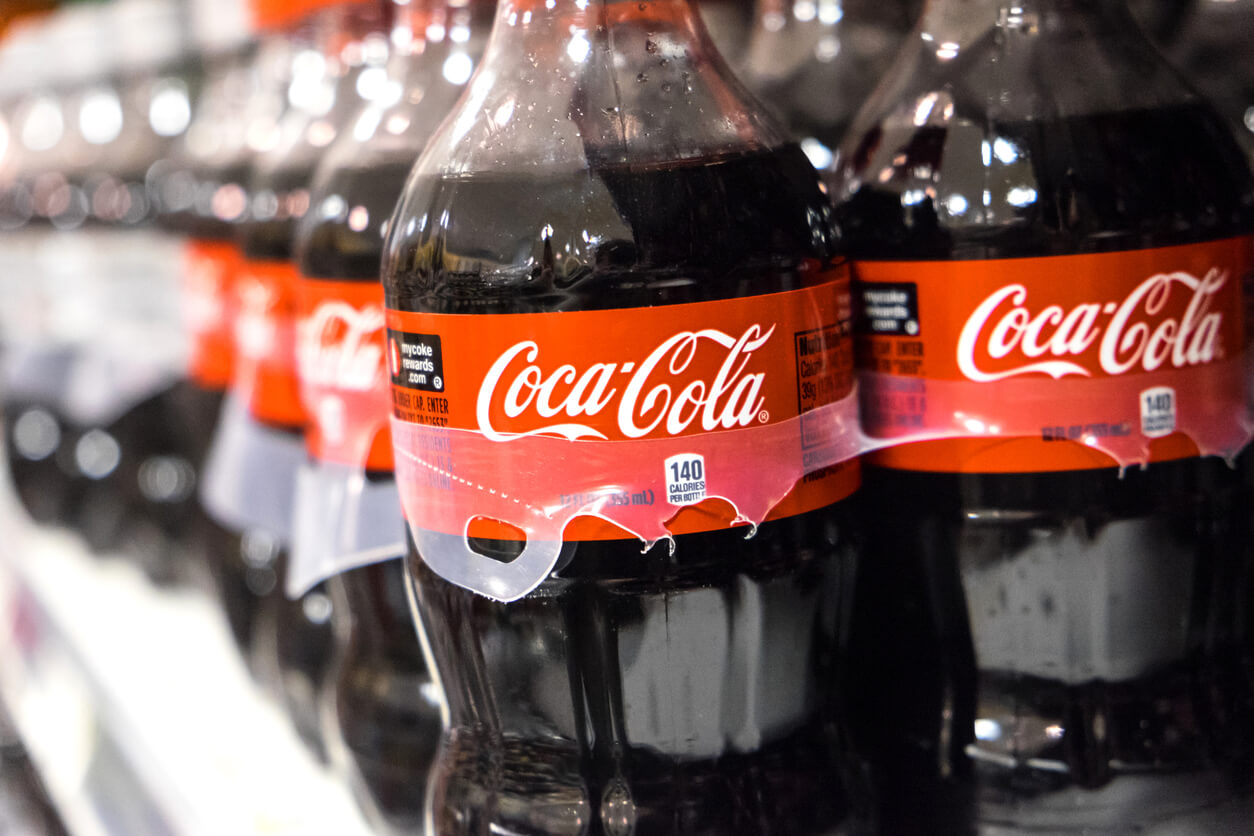How Coke’s Passover recipe sparked an antisemitic conspiracy theory
Soda giant uses cane sugar instead of high-fructose corn syrup for Jewish holiday

Photo by iStock
The conspiracy theory started, ironically, when an Orthodox rabbi stood in front of a display of Coca-Cola bottles and held up one with a yellow cap to explain Jewish life to roughly 1 million followers on TikTok and Instagram. The demonstration was intended to illustrate a quirk of the Passover season: a version of Coke that’s made without high-fructose corn syrup.
Instead, the soda is sweetened with cane sugar — a switch made to comply with religious dietary rules that prohibit certain grains and legumes during the eight-day Jewish holiday. The video, posted on Tuesday, framed the drink as slightly healthier, perhaps tastier, and available for a limited time.
But within 48 hours, the message was distorted into something else entirely. The video has racked up more than 6 million views after being re-shared by several far-right influencers on X. It has become fuel for an antisemitic conspiracy theory: that Coca-Cola is making a superior version of its product for Jews only. A chosen beverage of the chosen people.
The idea that “the Jews” are hoarding something — knowledge, money, vaccines, in this case soda — is hardly new. But the way this specific idea propagated, and the speed with which it did, is deeply contemporary. In the age of TikTok and X, every niche cultural product — even Passover Coke — can become a political totem. A bottle of soda becomes a flashpoint in a culture war.
The theory has no basis in fact. The yellow-capped bottles — labeled as kosher for Passover — are stocked in many major retailers and available to all consumers, regardless of religion. You do not need to show your b’nai mitzvah certificate or recite the Shema to purchase this product. A similar version of the drink, known as “Mexican Coke,” is sold year-round in the international aisle of many U.S. grocery stores and similarly contains sugar instead of high-fructose corn syrup.
But fact, as Mike Rothschild will tell you, has never been a prerequisite for conspiracy theories.
“No conspiracy theory involving Jews plotting to do something in secret surprises me anymore,” said Rothschild, the author of Jewish Space Lasers: The Rothschilds and 200 Years of Conspiracy Theories. I chatted with him while he was waiting to board a plane at the airport in Houston, where he had spoken at a conference on the convergence of antisemitism and anti-science.
“There are plenty of previous conspiracy theories about Jews creating special food or medical products for themselves,” he explained, “and none of them ever make sense.”
Take, for instance, the “kosher tax” theory — the idea that consumers are secretly paying extra for products marked kosher. This whole Coke situation, Rothschild added, is “an excuse to rehash old stereotypes to get clicks.”
“If anyone can just buy it, then it’s not ‘just for Jews,’ right?” he asked. “And if it’s the same formula as Mexican Coke — which does taste better, I might add — then what about it is special? It also misunderstands basic science — ultimately, sugar is sugar,” he said. “‘Healthy Coke’ isn’t even a thing, really.”
Atlanta, Ireland, Israel and beyond
Rabbi Norman Schloss, who works with the Orthodox Union — one of the largest kosher certification agencies in the world — has been supervising Coca-Cola’s compliance for decades. Based in Atlanta, the same city where Coca-Cola is headquartered, Schloss is required to sign non-disclosure agreements to protect trade secrets. The soda giant’s secret formula used to be stored in a safety deposit box at a local bank and is now ceremoniously kept locked in a huge vault in a museum in downtown Atlanta.
Schloss explained that Coke’s Passover production involves a global supply chain. For example, the base concentrate for Coca-Cola products sold in Israel is produced in Ireland, where he travels several times a year. During the lead-up to Passover, the factory is modified to use cane sugar instead of corn-based sweeteners.
During Passover, corn syrup is avoided by many Ashkenazi Jews, who follow traditions prohibiting kitniyot — legumes and grains that, while not technically forbidden by biblical law, were historically grouped with leavened products to avoid confusion. Cane sugar, being free of these restrictions, becomes the alternative. Coke’s cane sugar-based concentrate for Passover is shipped to a bottling plant in Bnei Brak, Israel, where it is further processed depending on the intended market and season.
Diet Coke falls into a special category called “kitniyot shenishtanu,” or “kitniyot that was changed.” As Schloss explains with the flair of Bill Nye the Science Guy: “They’ll take corn, they’ll propagate an enzyme on the corn. Then they’ll remove the enzyme, and from that, they make the sweetener. It has no resemblance whatsoever to corn in any way, shape or form, and therefore it’s OK.”
RFK Jr. and kosher-for-Passover Coke
Coca-Cola produced for U.S. consumers uses high-fructose corn syrup because the government subsidizes corn production, making it much cheaper than sugar.
Which brings us to Robert F. Kennedy Jr. — President Donald Trump’s Secretary of Health and Human Services. Kennedy has promised to ban both high-fructose corn syrup and seed oils — a bold policy move that has worried many farmers. Should he succeed, all Coke in America may one day come with a yellow cap — not because of religion, but because of economics and politics.
And if that happens, presumably the conspiracy theorists will pivot from “the Jews have special Coke” to “the Jews made us all drink special Coke,” because antisemitic logic is a fun house mirror with no exit.
Schloss said he personally avoids most sodas during Passover. “I drink seltzer or water,” he said with a laugh. “Although Dr. Brown’s cherry soda is a close second.”
















